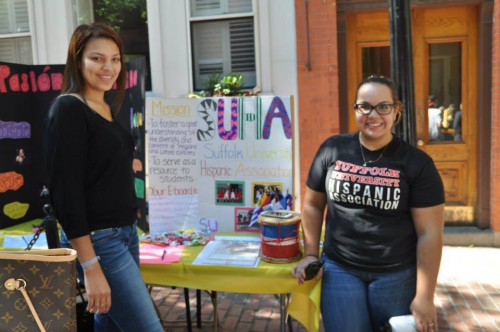Hispanic Heritage Month began in the United States in 1968 during President Lyndon Johnson’s administration. It is a month marked by celebrations of the rich cultures of the Spanish speaking world as well as recognitions or notable Hispanics that have been a part of the U.S.
The dates are from September 15 to October 15 annually as stated in the official Hispanic Heritage Month website. Now, although the days are not what we would normally expect when one says Hispanic Heritage Month, it was a decision strategically chosen to include a number of special days within the Hispanic culture. September 15 marks the day of the independence of Latin America countries such as Costa Rica, El Salvador, Guatemala, Honduras and Nicaragua, followed by Mexico and Chile. Columbus Day, or, “Dia de La Raza”, also falls within those dates on October 12.
However, the celebration didn’t always have an entire month dedicated to it. When it began in 1968, the festivities were limited to a short seven days to take place in. It wasn’t until two decades later in 1988 that Robert Lopez, an intern at the Congressional Hispanic Caucus, began to form a bill that would expand the official celebration.

(Photo courtesy of Suffolk’s Diversity Services’ Facebook)
“I got resistance at first. People didn’t just didn’t want to support commemorative legislation. People said things like, ‘Well, why would we do that? Aren’t we all American? That’s not a thing we want to support,’’ Lopez told CNN.
His colleagues at first saw the expansion as unnecessary. It was an idea of little importance that would take time that they could invest elsewhere.
This did not discourage Lopez, although he did seek guidance to continue his efforts. He found the advice he needed from the Black Caucus as well as observing and researching how Black History Month developed. Lopez prepared a list of notable Latinos that he would include in his presentation to the other members, and in August 1988, the bill was passed.
“I had no idea it would be as big as it is today,” said Lopez to CNN.
In 2013, Hispanic Heritage Month has found its way to every part of the U.S. culture. We can find festivals, TV shows and films, magazines, and even government sponsored events that give Americans an opportunity to admire arts, recipes, music, and dances that Hispanics grow up with, as well as become aware of the impact that they have made and continue to make to our history.
“I hope Hispanic Heritage Month helps people learn the things I didn’t know growing up, the importance of Latinos in our history, and the contributions they’ve have made,” Lopez said. “It’s a good way to celebrate our own culture, but also for non-Latinos to be exposed. You can’t really understand American history without understanding Latino history.”







